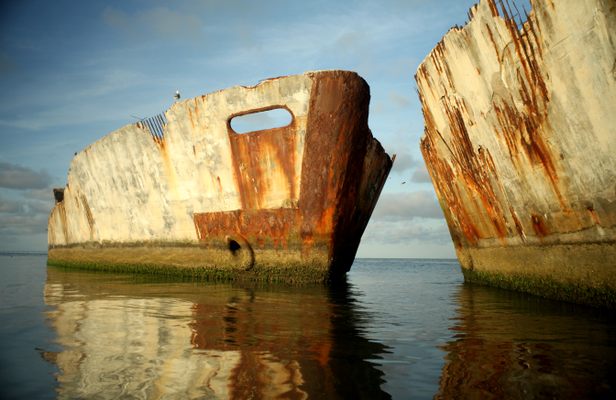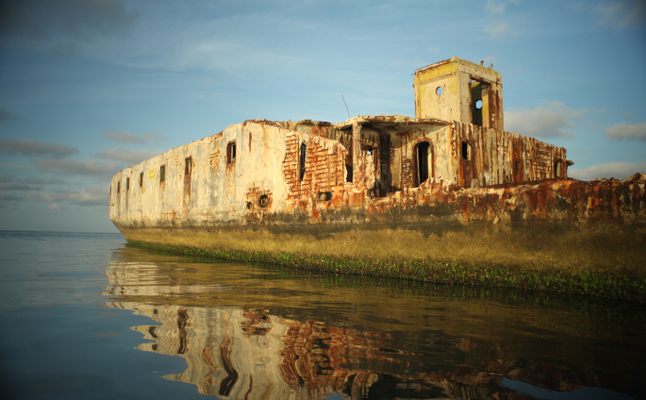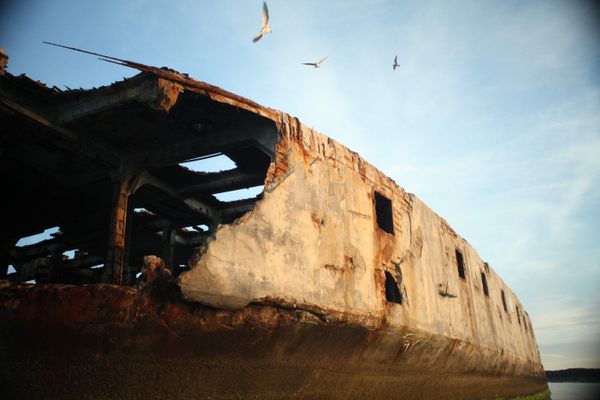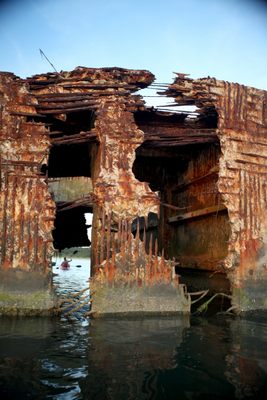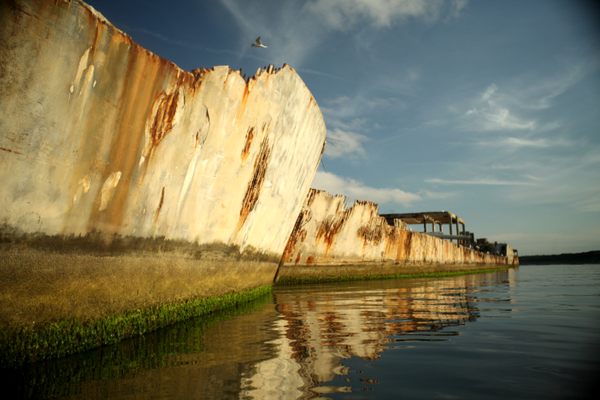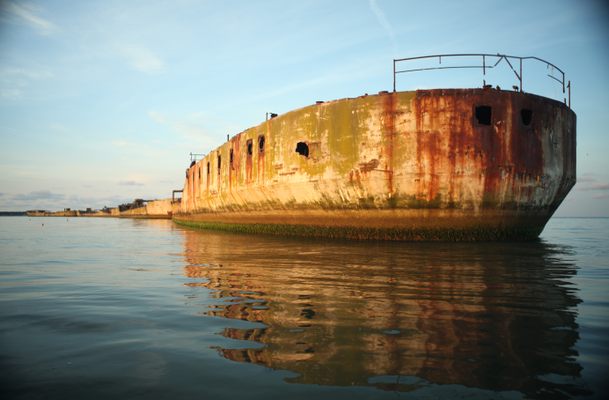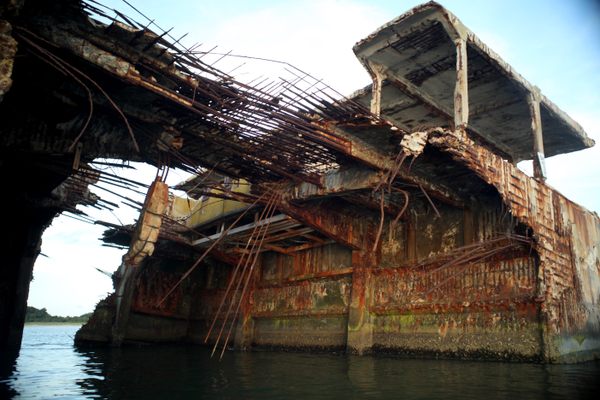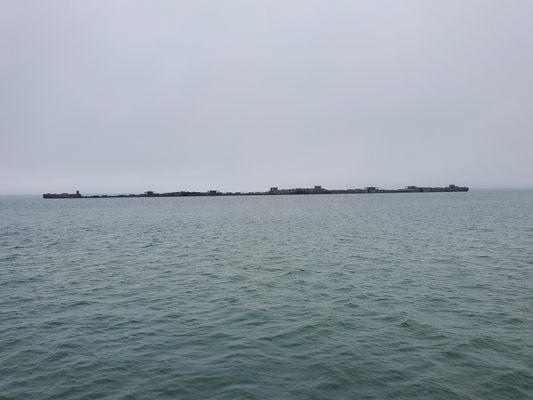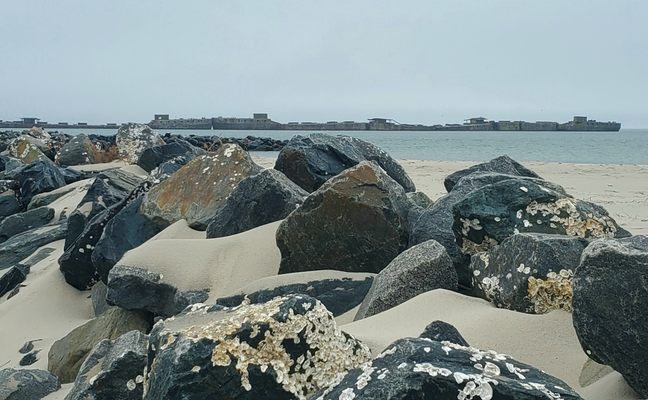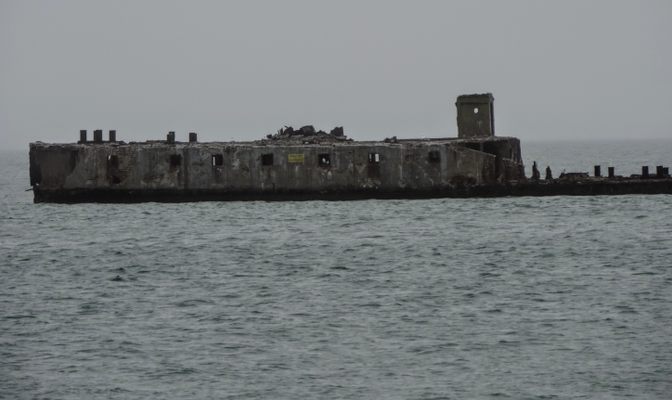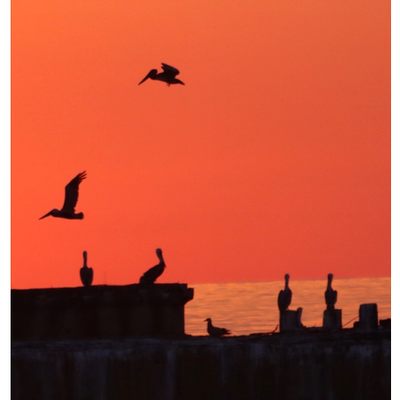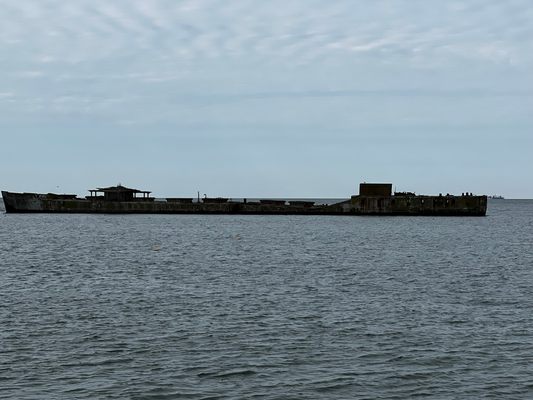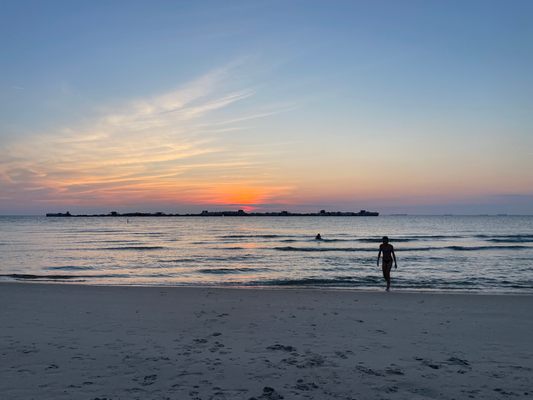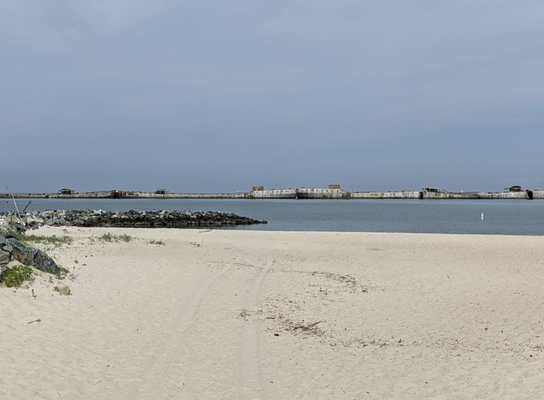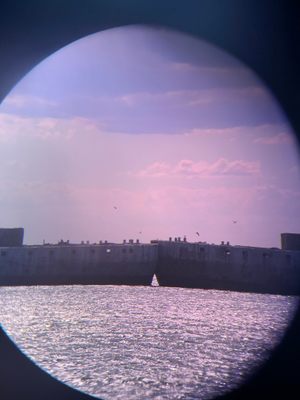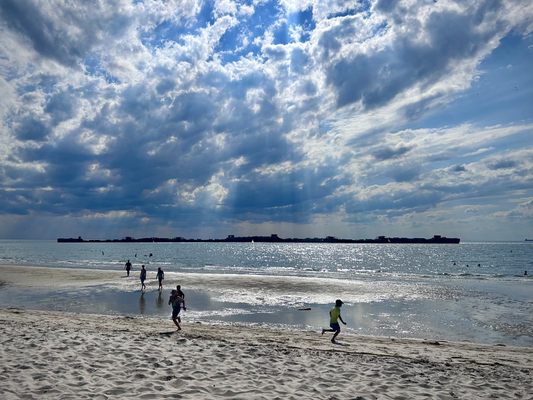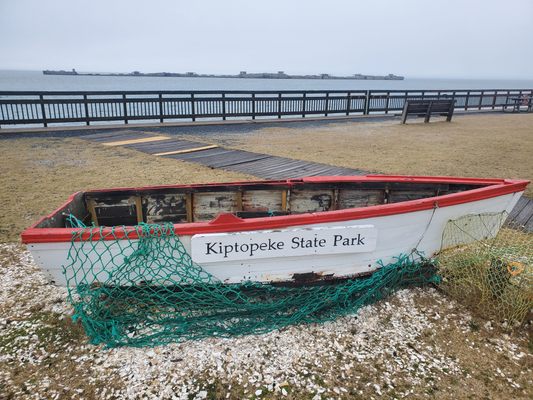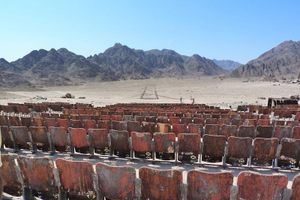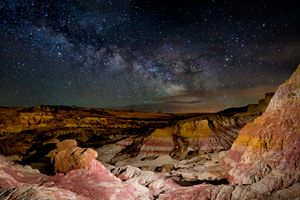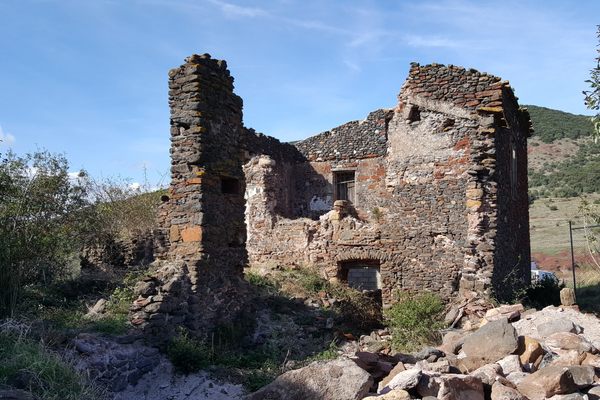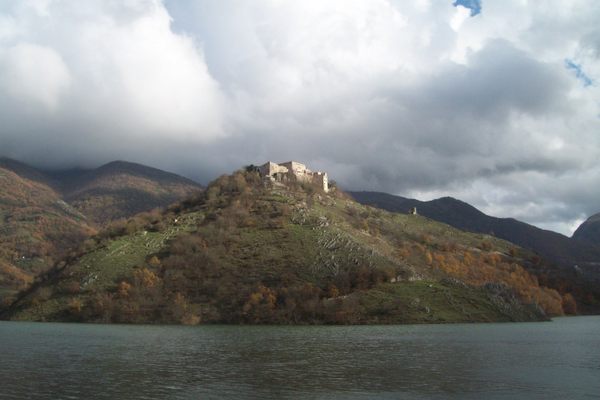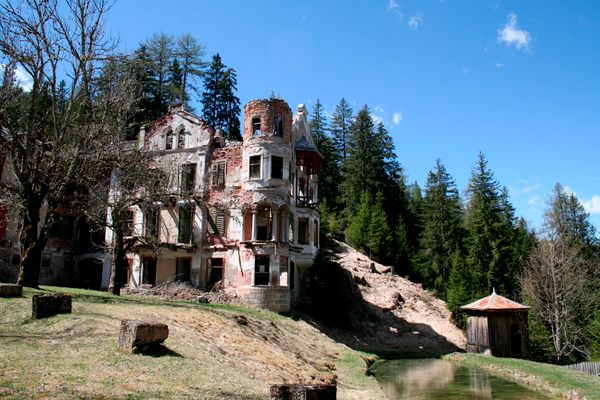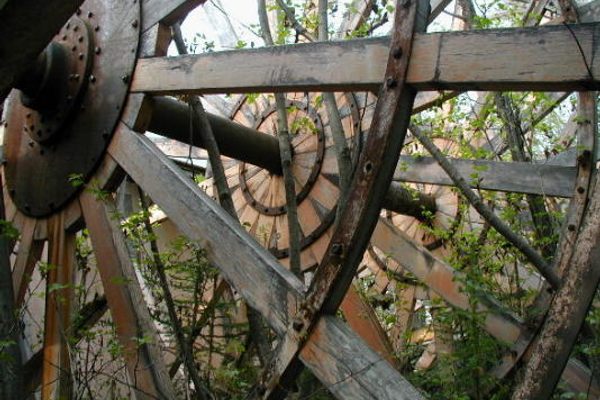About
Standard street lights illuminate the fishing pier near Kiptopeke State Park at night. The eerie glow falls off into the dark water after a few hundred yards, but staring into the black long enough you'll begin to make out the looming ghost fleet that appears to be approaching the shore.
The Concrete Fleet, also known as the Kiptopeke Breakwater, consists of several concrete ships lined end to end just west of the former Chesapeake Bay ferry terminal. The crumbling hulks consist of 9 of the 24 concrete ships contracted by the U.S. Maritime Commission during World War II. In 1948 the ships were brought to Kiptopeke Beach in order to bring protection to the terminal during severe weather. Once arranged, their bilge-cocks were opened to bring on water and they were left to settle on the bottom of the Bay.
The ferry was closed in 1964 when the Chesapeake Bay Bridge Tunnel opened but the breakwater still protects the pier and beach while providing a home for coastal fish, shellfish, and birds. Since being scuttled in the bay the rusty bones of these ships have been exposed to half a century of weather creating an incredible show of decay. Certain sections of the wrecks offer holes large enough for a small boat to pass through where one can see the interior structure of these vessels up close.
The ships of the Concrete Fleet, all named after pioneers in the science and development of concrete, are listed below from North to South:
S.S. Arthur Newell Talbot
S.S. Edwin Thatcher
S.S. Robert Whitman Lesley
S.S. Willis A. Slater
S.S. Leonard Chase Wason
S.S. Ricard Kidder Meade
S.S. John Grant
S.S. William Foster Cowham
S.S. Willard A. Pollard
Related Tags
Know Before You Go
The ships lie, partially sunken, about a quarter mile off the shore near the fishing pier. Kayaks are available for rent at the pier if you want to get up close and personal with the ships and the many nesting birds that live on them.
Community Contributors
Added By
Published
December 22, 2015
